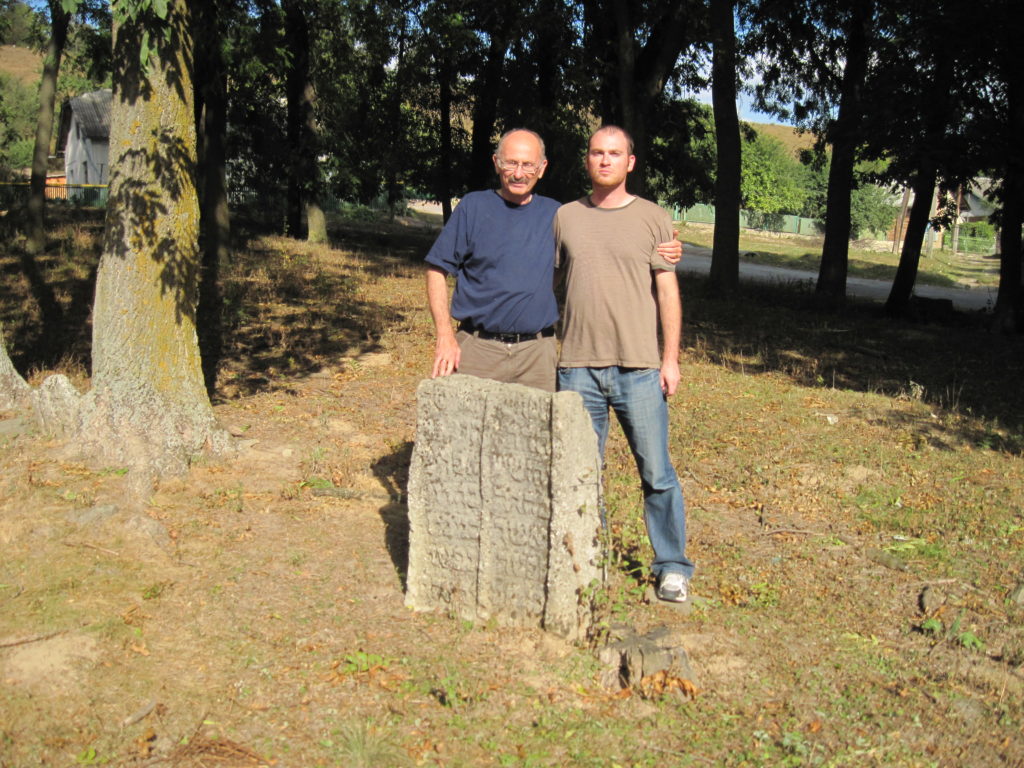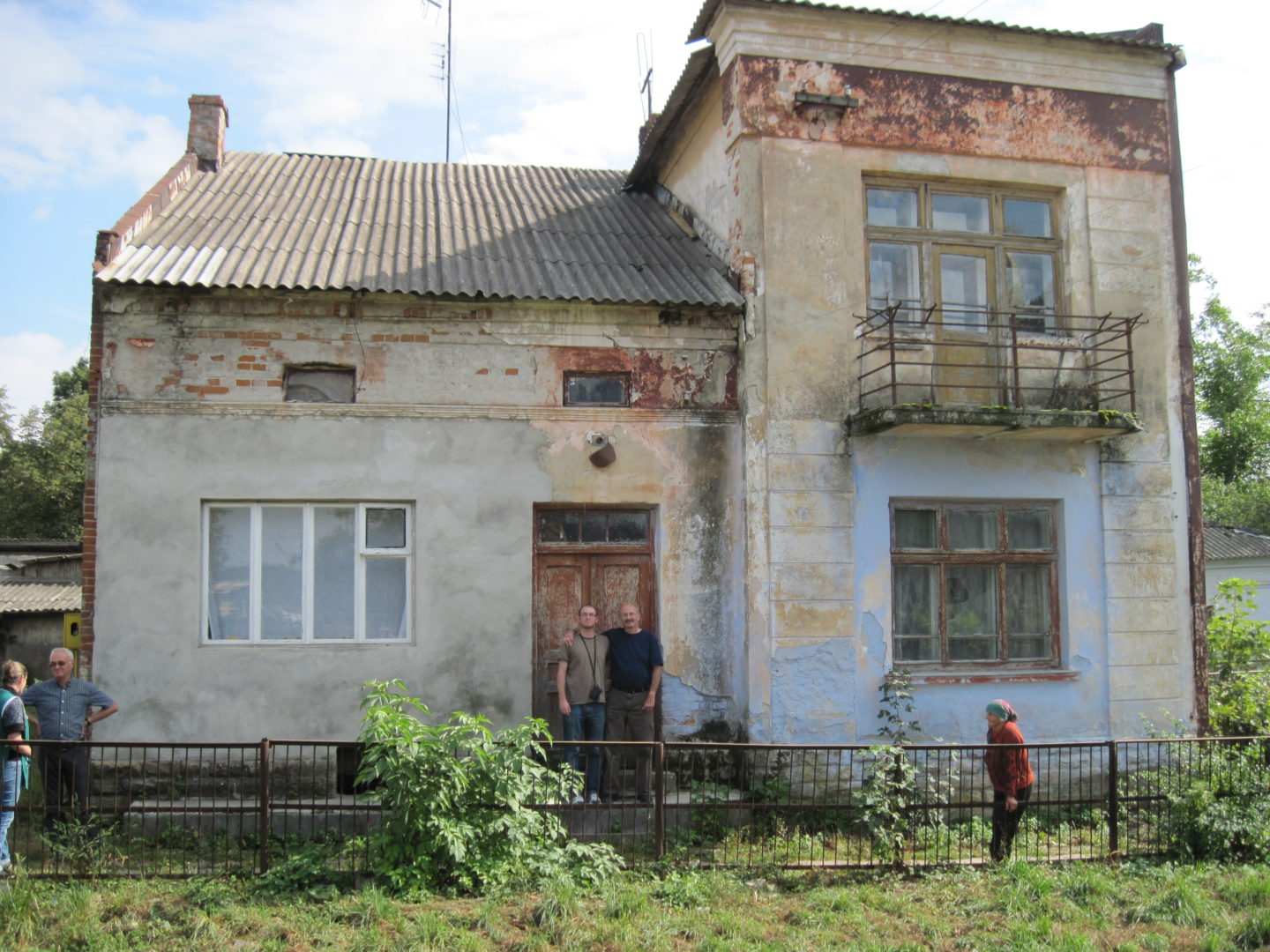Backstory is a CJN column recalling some of the most bizarre, unique, and important moments in Jewish history. Click here for last week’s instalment.
My father and I recognized the house immediately. We had seen it many times before in that black-and-white photograph, enlarged and framed, hanging in our house in Montreal. In that picture, my grandfather, Arnold Weinfeld, stood with his sister Gisella and his parents, Moshe and Brauna, by the front steps. It was the same spot where my father and I stood now.
That was in 2011. We went to Budaniv, Ukraine – formerly Budzanov, Poland – in search of memories and ghosts. Instead we found a home filled with people. Two Ukrainian families lived in the house where my grandfather grew up. I don’t know how they got there. The Weinfelds never sold that house. The children made it out of eastern Europe; Gisella and her brother Abraham before the war, my grandfather Arnold after. Moshe and Brauna were not so lucky.
READ: HOLOCAUST MEMORIAL UNVEILED IN SURINAME
Nazis or their collaborators murdered all eight of my great-grandparents. My four grandparents were Holocaust survivors, but my upbringing was pleasant. I lived in a comfortable middle-class home filled with books, in a loving family with two parents with doctorates and two caring sisters. I went to good schools, took vacations to Florida and Israel, played street hockey in a safe neighbourhood, and benefited from the relatively robust Canadian welfare state.
But when I stood in front of that house in Budaniv, I felt the weight of history. “Doesn’t the house belong to us? Aren’t we, the descendants of Moshe and Brauna Weinfeld, somehow entitled to it? Did our slaughtered ancestors not deserve some measure of justice?” I asked my father.
We quickly realized that returning the house to our possession would not accomplish very much. We were not going to summer in western Ukraine, in a town with no running water. Nor did we want to displace the current occupants without compensation. Apparently, the present owner was trying to sell it, and only half-jokingly we discussed buying the house and converting it into some sort of shtetl museum. We still might do that.
Before encountering the house, I didn’t think much about reparations. My only other major association with the concept was the summer of 2001, when I visited Berlin with a Jewish friend. We entered a chocolate shop, where there was a table with free samples. We each took one. Then I thought, “They owe me more than one!” I took as many as I could fit in my fists and shoved them into my bag. Reparations!
I thought about this again as the debate over reparations for African-American victims of slavery, Jim Crow segregation, and other forms of racial discrimination returned to the media. Reparations in the form of targeted payments to individuals and communities will not by themselves solve the problems of black America. Massive social democratic reform, expansion of the welfare state, increased gun control, drug legalization, and other universal political, legal, and economic measures will be required to accelerate the healing process. Nonetheless, an official reparations program can and will have tremendous psychological value for the African-American community.
Jews who lived far from the horrors of the Holocaust, or far after, benefited psychologically from reparations payments made to their co-religionists. Reparations reinforced the German admission of guilt. They brought a small degree of closure to a wound that would never entirely heal. For future generations, the Holocaust became something we would never forget, but also something we would not let haunt us. The official recognition of our suffering will never make up for the individual lives lost and scarred, but it has eased our collective pain. That sentiment holds true from the graveyards of eastern Europe to the battered ghettos of urban America.

In Budaniv, there is an old Jewish cemetery, with most of the tombstones knocked down, moss growing over them. You can still make out some of the Hebrew writing, including a common epitaph, the opening line to the Book of Job, which described the titular character as “a man perfect and upright.” Job loses his family and suffers greatly, only to be blessed with a new family in the end.
It does not make up for the earlier tragedy. It is partial justice, the only kind available in an imperfect world.
David Weinfeld teaches American studies at the University of Toronto
